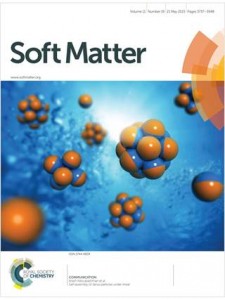 Barislav Momčilović thinks that iodine status is — after iron deficiency — the “main public health” issue in the world today. So when he figured out what he believed was the best way to test levels of the mineral, he was determined to get the message out.
Barislav Momčilović thinks that iodine status is — after iron deficiency — the “main public health” issue in the world today. So when he figured out what he believed was the best way to test levels of the mineral, he was determined to get the message out.
A little too determined, perhaps: He published the same information three times. And one journal caught on. Last week, Thyroid retracted “Hair Iodine for Human Iodine Status Assessment,” a 2014 paper that they say overlapped with two earlier works.
While publishing duplicate work is considered by some to be just a violation of restrictive publisher copyright agreements, the presence of such duplicates in the literature can bias systematic reviews and other attempts to describe the state of the evidence in a given field. In a retraction notice, Thyroid noted that this was a case of Continue reading An author says his work should be “widely heralded and promoted.” So he published it 3 times.








